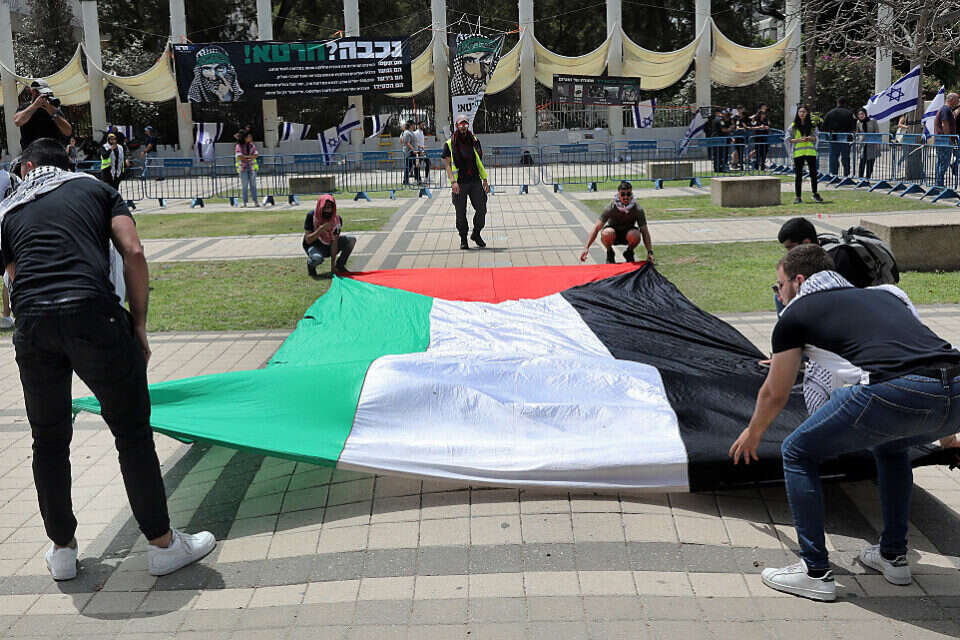One of the hottest arenas in recent weeks is the academic campuses in Israel.
We have reached "this time of year."
Around what the Arabs call "Nakba" day, a tradition of extremism and rampage has been created, with its main stage in Israel being the campuses.
Under the guise of freedom of expression through academic freedom, universities have become a breeding ground for Palestinian art.
This year, the extremism among Arab students is sharper, the violence is more severe, the bluntness and impudence are skyrocketing.
And the university managements?
Silence.
In a show of cowardice coming from deliberate negligence, managements even allow pro-terrorism students to stay on campus.
It started about two months ago, at the Hebrew University, a day after the attack in Hadera in which two policemen were killed.
Two Arab students sang a song of incitement: "Mom, I'm going to jihad."
In response, Arabic-speaking police officers studying on campus detained them for questioning.
In an absurd move, the university administration actually went out against the police officers who acted, instead of giving them a SLA.
The inciting students have meanwhile been released and returned to campus.
They are not alone, the Hebrew University regularly houses disturbed demonstrations by Arabs on campus.
Statements such as "what is certain, do not want to see Zionists", "in blood in the law will redeem you Sheerin" have become routine, and spitting, cursing and confrontations are the lot of the Jewish students there.
The show is also at its peak at Bezalel.
There, a student is accused of involvement in setting fire to a house and car of a Jewish family in Shimon Hatzadik.
Some of his fellow students went on a fundraising campaign for him, "Jamal our friend, we love him."
And where is the management?
What would have happened if money had been collected there, say, for the "hate wedding" defendants?
And this is not the only case.
A day after the attack in Bnei Brak, another student expressed public support for the terrorist.
Dozens of complaints were sent to management, which did not even bother to convene a disciplinary committee.
Only about a month later, the police removed him from Jerusalem for 15 days.
His friends on campus went out in support demonstrations, waving PLO flags and chanting incitement. And the management? Shut up.
At Tel Aviv University, the spirit of the commander is clear.
The president of the university, Prof. Ariel Porat, issued a letter, which he signed in an address to Jewish students: "Those of us who belong to the Jewish majority in the State of Israel have a special duty to protect the minorities living among us."
It was a day after a violent demonstration in which Arab protesters beat the Jewish protesters.
And it is precisely from the north that the good opens.
The Safed Academic College recently decided to permanently expel a student who supported terrorists from the attack in Hadera, calling them "heroes" and adding "it is good that the Jews will suffer."
The college administration was quick to set boundaries - "We will not allow terrorist support to enter the walls of the campus," the college's director general said this week, "We will not wave PLO flags."
How did it happen that he was the exception and not the norm?
How did we get used to walking cramped in the heart of academia in the State of Israel?
Were we wrong?
Fixed!
If you found an error in the article, we'll be happy for you to share it with us

